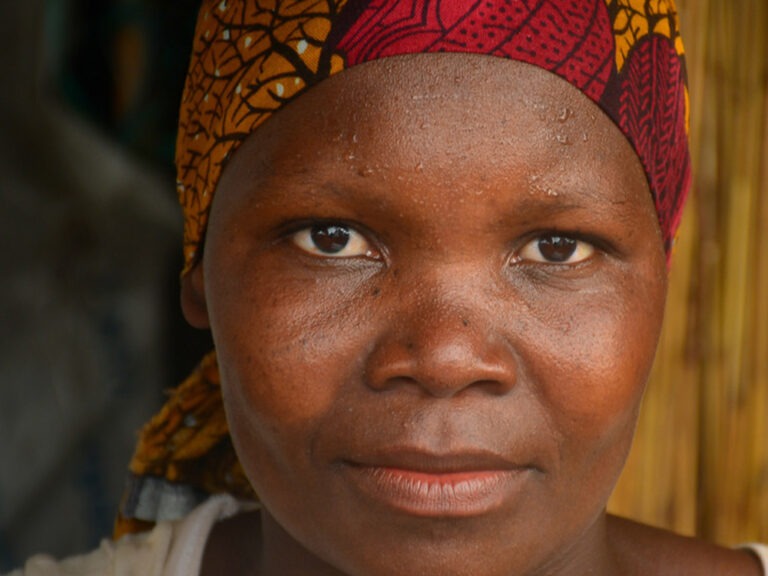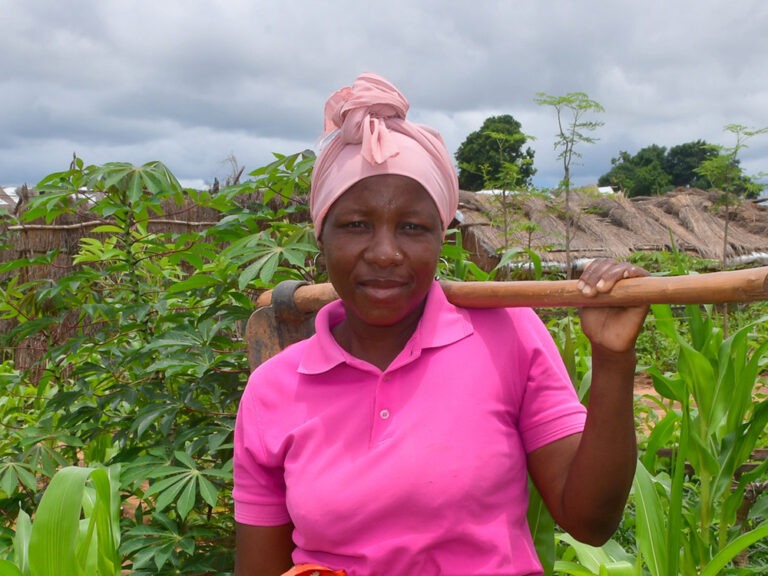What is happening in Mozambique?
On December 15th, Tropical Cyclone Chido hit Mozambique, damaging homes, roads and other buildings.
The intense winds have damaged a huge number of homes, uprooting thousands of people. Over 170,000 people have been affected and hundreds are staying in evacuation centres in Pemba.
The Cyclone has hit an area which is already experiencing extreme difficulties due to ongoing conflict. Thousands of people have already had to leave their homes to find safety.
Donate Now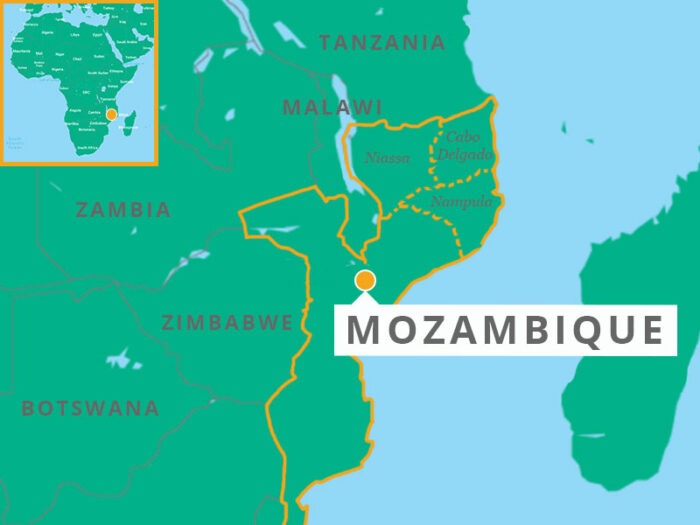
Where is Mozambique?
Mozambique is a southern African nation.
With the Indian Ocean to the east, it is bordered by Tanzania to the north, Malawi, and Zambia to the northwest, Zimbabwe to the west, and Eswatini (Swaziland) and South Africa to the southwest.
Tropical Cyclone Chido made landfall in the northern province of Cabo Delgado. This is also where the ongoing conflict is focused.
Mozambique has a population of approximately 28 million (INE, 2017). 68% live in rural areas and 60% live along the coastline. Livelihoods in Mozambique depend largely on natural resources.
It is estimated that 46.1% of the of the population is living below the poverty line.
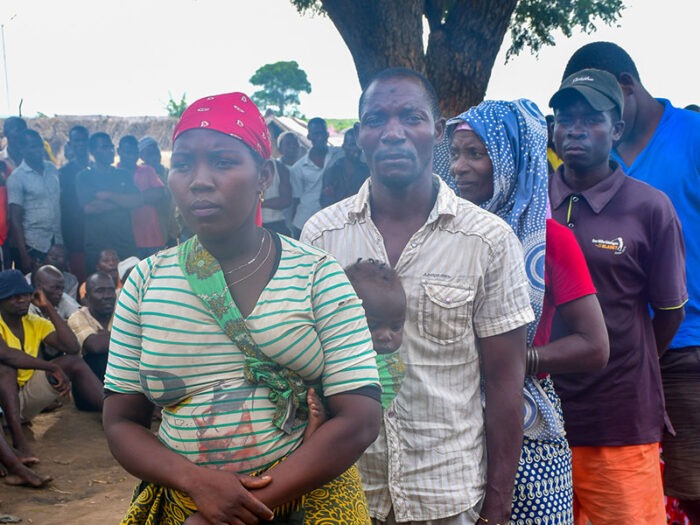
The conflict in Mozambique
The conflict in northern Mozambique has been causing widespread displacement since 2017. It is one of the fastest growing displacement crises in the world.
In December 2023, rising violence broke out across the Cabo Delgado province in northern Mozambique, uprooting people from their homes.
People are having to move again and again as areas become unsafe because of the escalating violence. More than 780,000 people have been forced to leave their homes.
The need for shelter is huge, with families sleeping outdoors, exposed to harsh weather, disease and other protection risks.
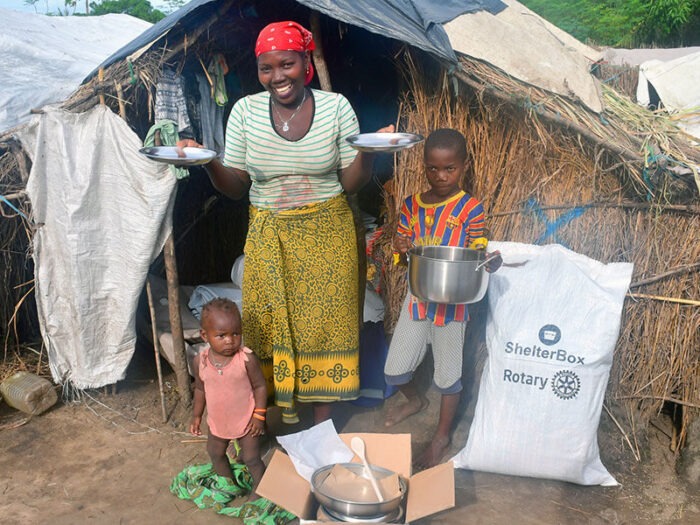
How is ShelterBox supporting people affected in Mozambique?
We are supporting vulnerable communities affected by the conflict along with communities affected by Tropical Cyclone Chido.
Tropical Cyclone Chido
A tropical cyclone Chido made landfall in parts of Mozambique on December 15th, 2024. 75% of people affected were women and children, with at least 86,500 houses destroyed or damaged. We were able to support around 3,400 households -and we plan to support more.
This was one of our first ‘preparedness’ projects in Mozambique, this means we’d pre-shipped aid items in June and stored them with our partner CARE, in preparation for the Cyclone season. This meant we could respond quickly and efficiently to the disaster.
We provided essential items like thermal blankets, sleeping mats, kitchen sets, mosquito nets and solar lights, to assist people in their recovery.
Ongoing conflict
We have already supported over 70,000 people displaced by the conflict with our partner, CARE Mozambique.
Our current addresses the urgent needs of crisis affected people in the north of the country is supported and funded by the EU. We are working in partnership to reach those most affected by the conflict and offer support.
Together with our partner CARE Mozambique, we are providing emergency household items, like solar lamps, kitchen sets, sleeping mats and mosquito nets to around 6,850 households.
Support our workWhy is there a conflict in Mozambique?
Mozambique is one of the most unequal countries in Sub-Saharan Africa. Combined with extremely high levels of poverty, this has created high levels of social tension.
In October 2017 an extremist group, known as Ahlu Sunna Wal-Jama, launched attacks on the northern province of Cabo Delgado.
The group has since carried violent attacks on innocent people, government forces, and military installations.
The violent attacks have been concentrated on the coast of Cabo Delgado, from Pemba city to the Tanzanian border. But, as the violence increases further, it is now beginning to spread into provinces such as Niassa.
In November and December 2024, fresh attacks have caused more areas to become unsafe. As a result thousands more people have had to flee their homes.
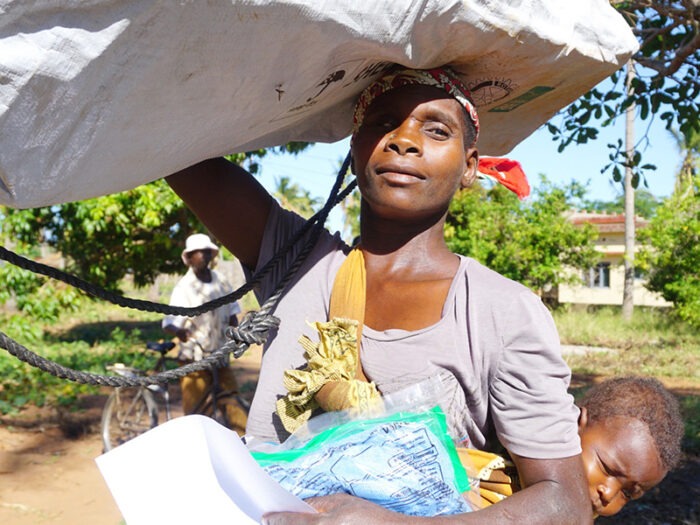
Who is affected?
As of March 2024, over 780,000 people have left their homes due to the conflict. Of these, 80% are women and children.
90% of people report shelter as their most urgent need, followed by food (88%).
Most people are staying with family and friends in host communities, whose resources are already strained.
Now, these same people are having to cope with the destruction of Tropical Cyclone Chido.
The situation is desperate and chaotic. But as other crises around the world continue to escalate, more and more humanitarian agencies are reporting that they are running out of funds for their work in Cabo Delgado.
Communities bearing the brunt of this conflict need emergency shelter as soon as possible.

